Filter by
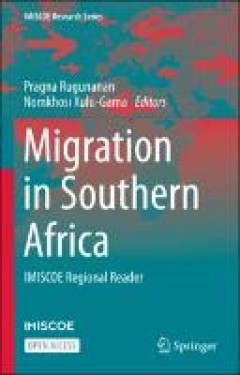
Migration in Southern Africa: IMISCOE Regional Reader
This open access Regional Reader proposes new ways of theorizing migration in Southern Africa by arguing that traditional western forms of theorizing do not adequately fit the South-South migration context. It explores the existing definitions of a ‘migrant’ with a view to conceptualise a definition which will speak to the complexities, envisioning a more inclusive Southern African region. …
- Edition
- Ed. 1
- ISBN/ISSN
- 9783030921149, 9783031041051
- Collation
- 270
- Series Title
- IMISCOE Research Series,
- Call Number
- 325.1 MIG m
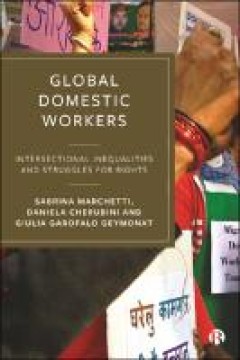
Global Domestic Workers
"EPDF and EPUB available Open Access under CC-BY-NC licence. Drawing from the EU-funded DomEQUAL research project across nine countries in Europe, South America and Asia, this comparative study explores the conditions of domestic workers around the world and the campaigns they are conducting to improve their labour rights. The book showcases how domestic workers’ movements put ‘intersection…
- Edition
- -
- ISBN/ISSN
- 9781529207910
- Collation
- -
- Series Title
- -
- Call Number
- -
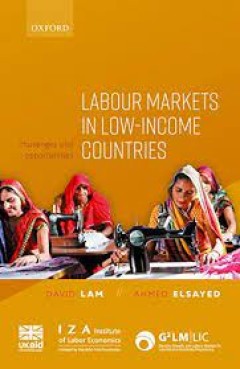
Labour Markets in Low-Income Countries Challenges and Opportunities
Employment and job creation are key components in achieving economic growth and sustainable development, particularly in low-income countries. The growing size of the working-age population in many developing regions underscores the need to further strengthen labour market structures in the world’s poorest countries. Despite the importance of studying emerging labour markets, and investigatin…
- Edition
- -
- ISBN/ISSN
- 9780192897107
- Collation
- -
- Series Title
- -
- Call Number
- -
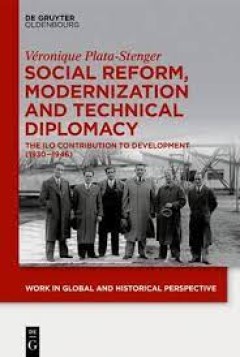
Social Reform, Modernization and Technical Diplomacy The ILO Contribution to…
Based on an extensive exploitation of the ILO archives, this book analyzes the emergence of a development discourse and practices at the international level between 1930 and 1946. It challenges several presumptions with regard to the chronology of development and its ideological origins. By focusing on the actors and practices of development, this book offers new depth to the concepts of "epist…
- Edition
- -
- ISBN/ISSN
- 9783110615975
- Collation
- -
- Series Title
- -
- Call Number
- -

Precarious Lives Forced labour, exploitation and asylum
Available Open Access under CC-BY-NC-ND licence This ground breaking book presents the first evidence of forced labour among displaced migrants who seek refuge in the UK. Through a critical engagement with contemporary debates about precarity, unfreedom and socio-legal status, the book explores how asylum and forced labour are linked, and enmeshed in a broader picture of modern slavery produced…
- Edition
- -
- ISBN/ISSN
- -
- Collation
- -
- Series Title
- -
- Call Number
- -
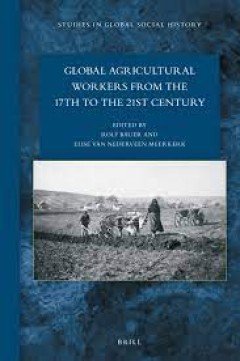
Global Agricultural Workers from the 17th to the 21st Century
Agricultural workers have long been underrepresented in labour history. This volume aims to change this by bringing together a collection of studies on the largest group of the global work force. The contributions cover the period from the early modern to the present – a period when the emergence and consolidation of capitalism has transformed rural areas all over the globe. Three questions h…
- Edition
- -
- ISBN/ISSN
- 9789004529427
- Collation
- -
- Series Title
- -
- Call Number
- -

A European Social Union after the Crisis
Today, many people agree that the EU lacks solidarity and needs a social dimension. This debate is not new, but until now the notion of a 'social Europe' remained vague and elusive. To make progress, we need a coherent conception of the reasons behind, and the agenda for, not a 'social Europe', but a new idea: a European Social Union. We must motivate, define, and demarcate an appropriate notio…
- Edition
- -
- ISBN/ISSN
- 9781108235174
- Collation
- -
- Series Title
- -
- Call Number
- -

A European Social Union after the Crisis
Today, many people agree that the EU lacks solidarity and needs a social dimension. This debate is not new, but until now the notion of a 'social Europe' remained vague and elusive. To make progress, we need a coherent conception of the reasons behind, and the agenda for, not a 'social Europe', but a new idea: a European Social Union. We must motivate, define, and demarcate an appropriate notio…
- Edition
- -
- ISBN/ISSN
- 9781108235174
- Collation
- -
- Series Title
- -
- Call Number
- -
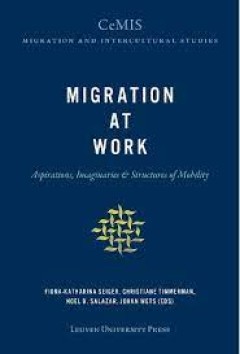
Migration at Work Aspirations, Imaginaries & Structures of Mobility
"Migration and Labour Mobility The willingness to migrate in search of employment is in itself insufficient to compel anyone to move. The dynamics of labour mobility are heavily influenced by the opportunities perceived and the imaginaries held by both employers and regulating authorities in relation to migrant labour. This volume offers a multidisciplinary approach to the study of the structur…
- Edition
- -
- ISBN/ISSN
- 9789461663450
- Collation
- -
- Series Title
- -
- Call Number
- -
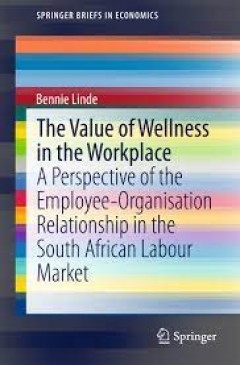
The Value of Wellness in the Workplace A Perspective of the Employee-Organis…
This book examines the links between employee-organisation relationships, work wellness and the impact thereof on the labour market from a South African perspective. By employing this focus, the book explains the role of the employment relationship and the psychological contract in improving work wellness. To do so, it reviews the establishment and management of contracts in the context of labo…
- Edition
- -
- ISBN/ISSN
- 978-981-287-402-3
- Collation
- -
- Series Title
- -
- Call Number
- -
 Computer Science, Information & General Works
Computer Science, Information & General Works  Philosophy & Psychology
Philosophy & Psychology  Religion
Religion  Social Sciences
Social Sciences  Language
Language  Pure Science
Pure Science  Applied Sciences
Applied Sciences  Art & Recreation
Art & Recreation  Literature
Literature  History & Geography
History & Geography